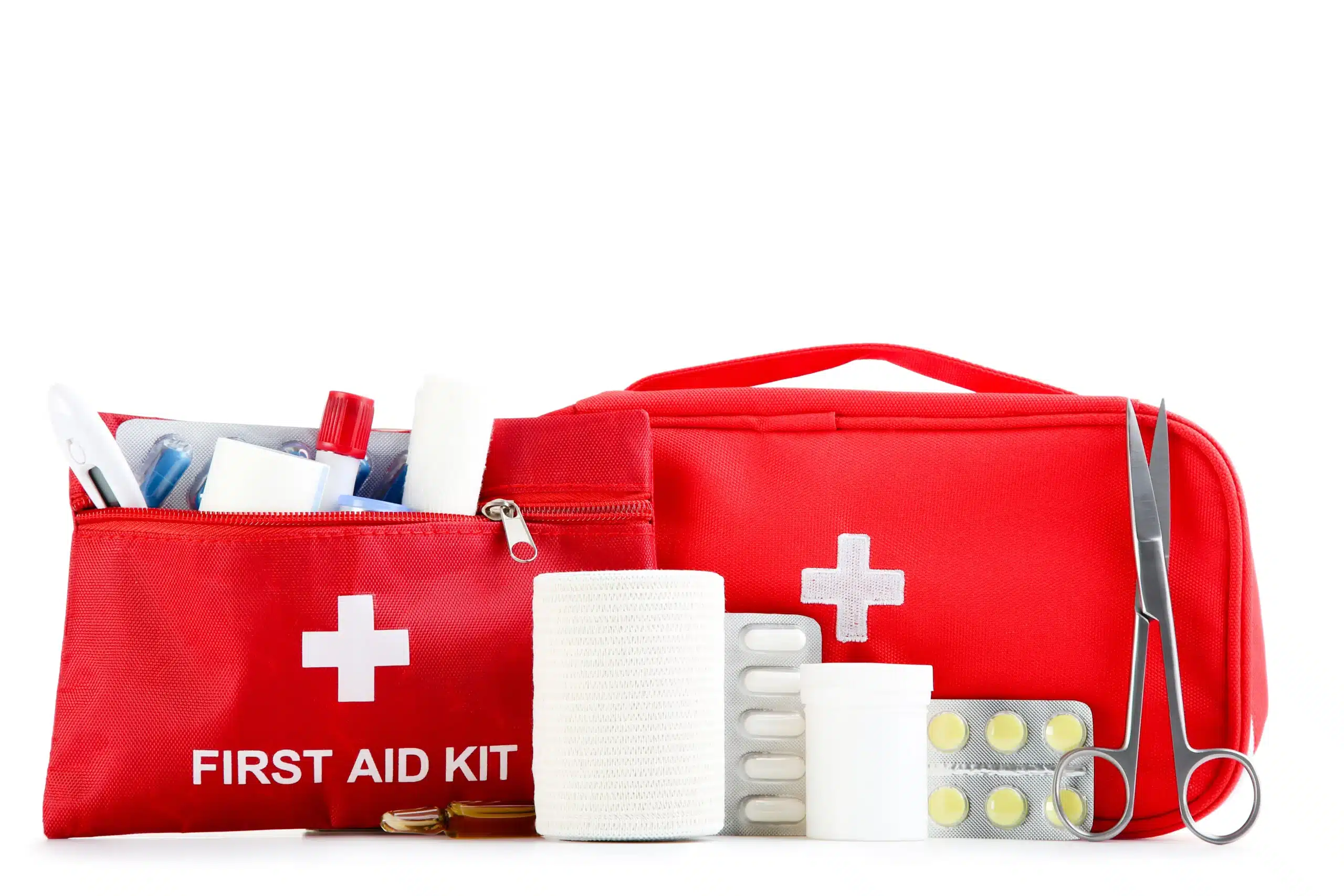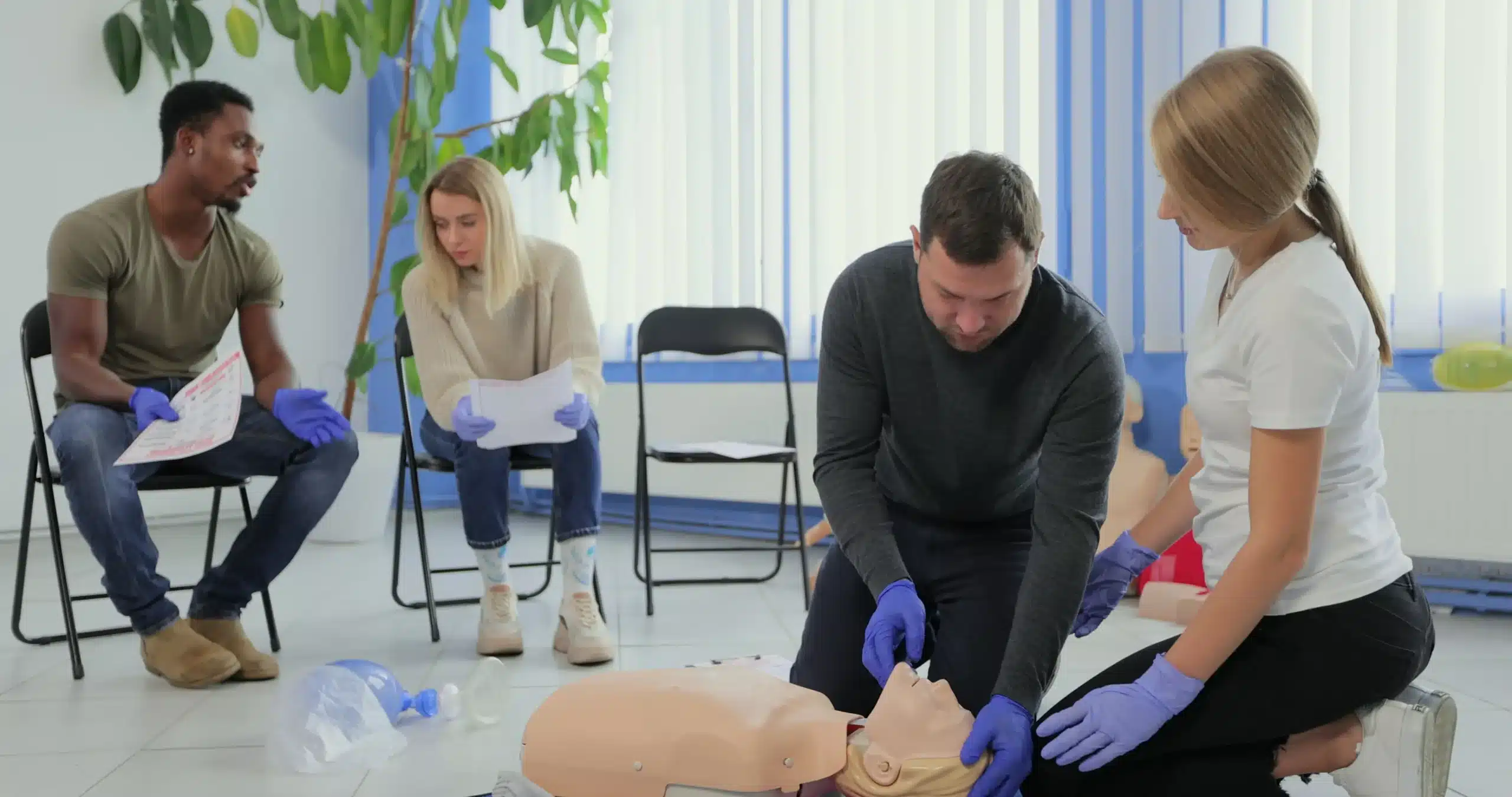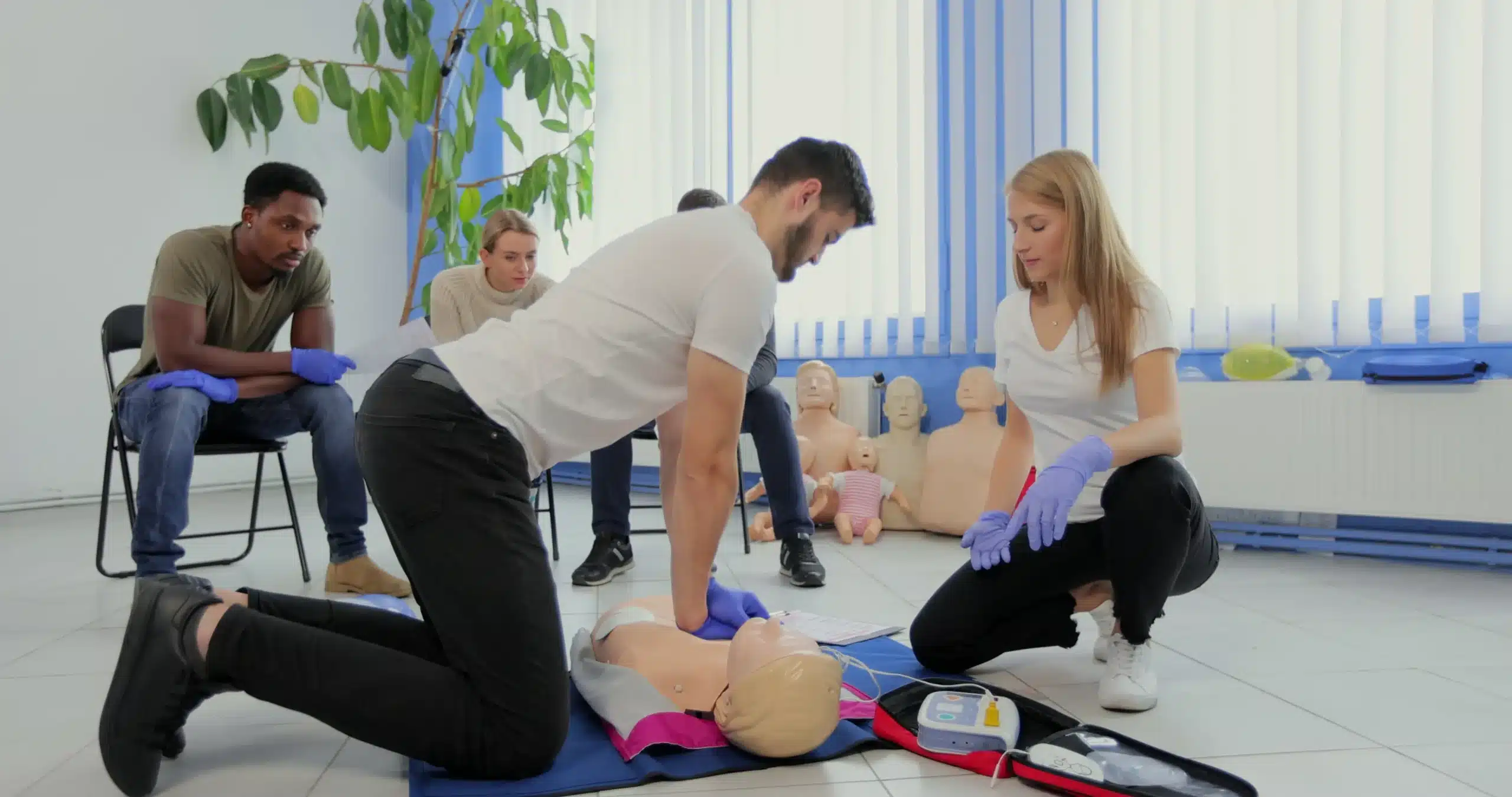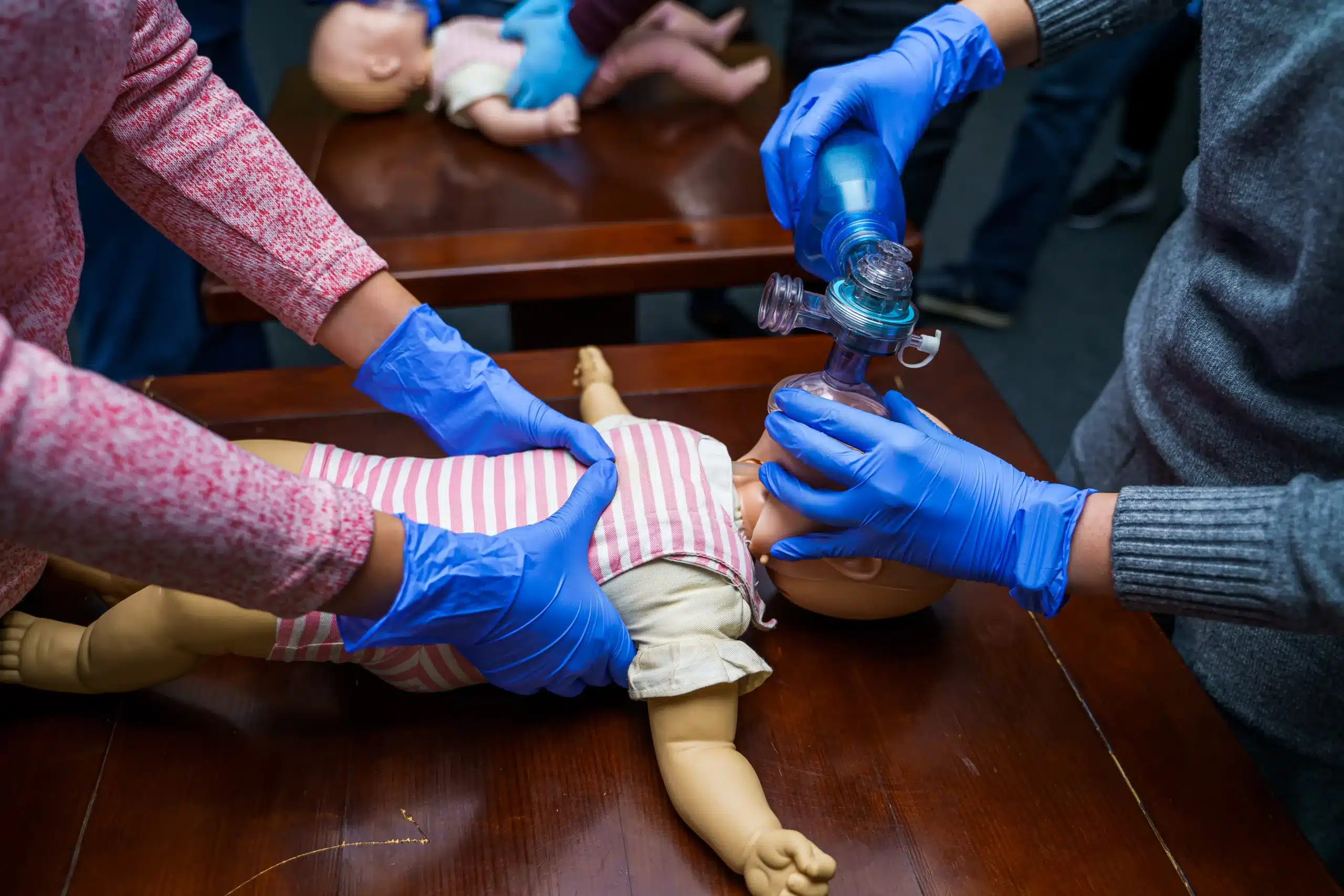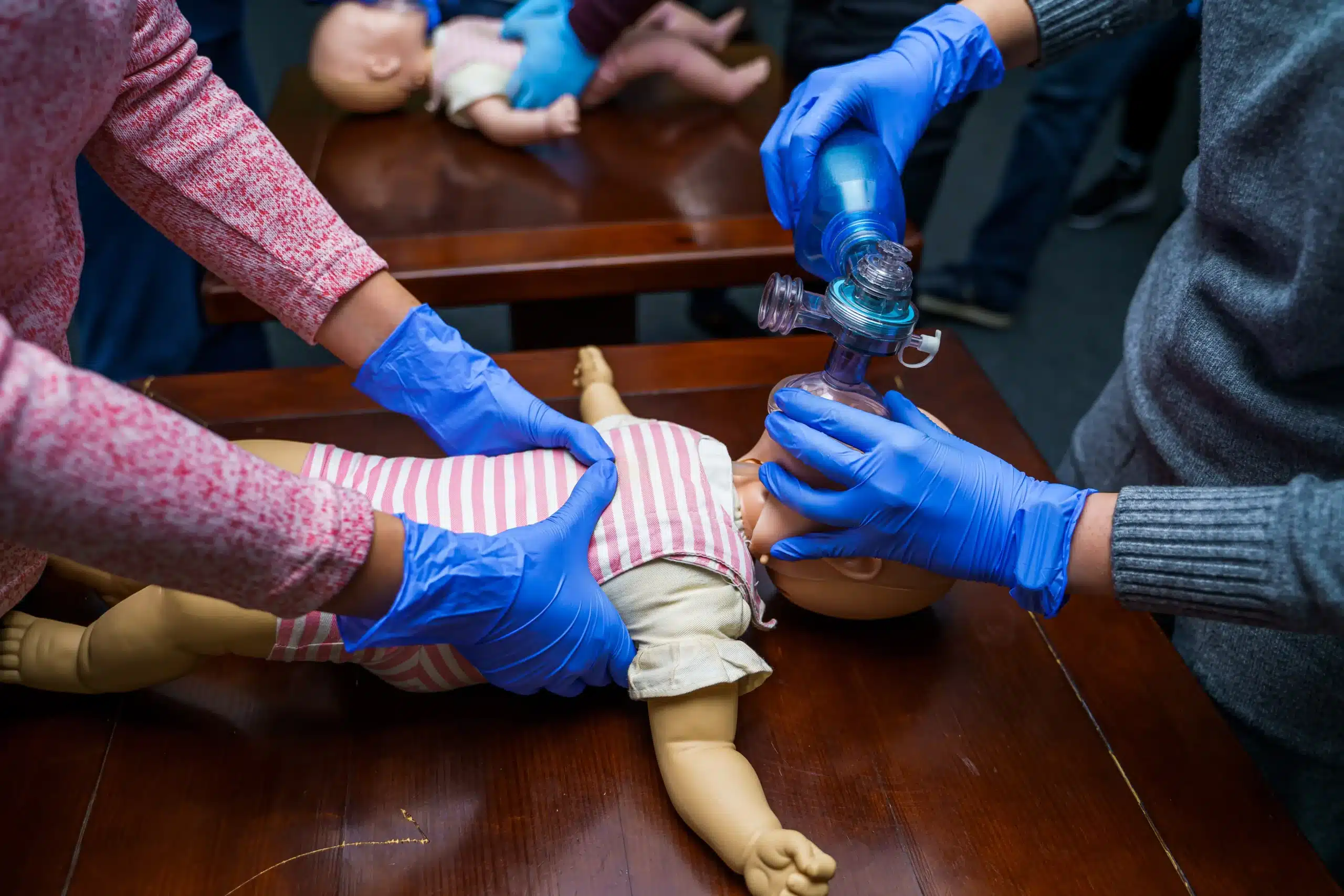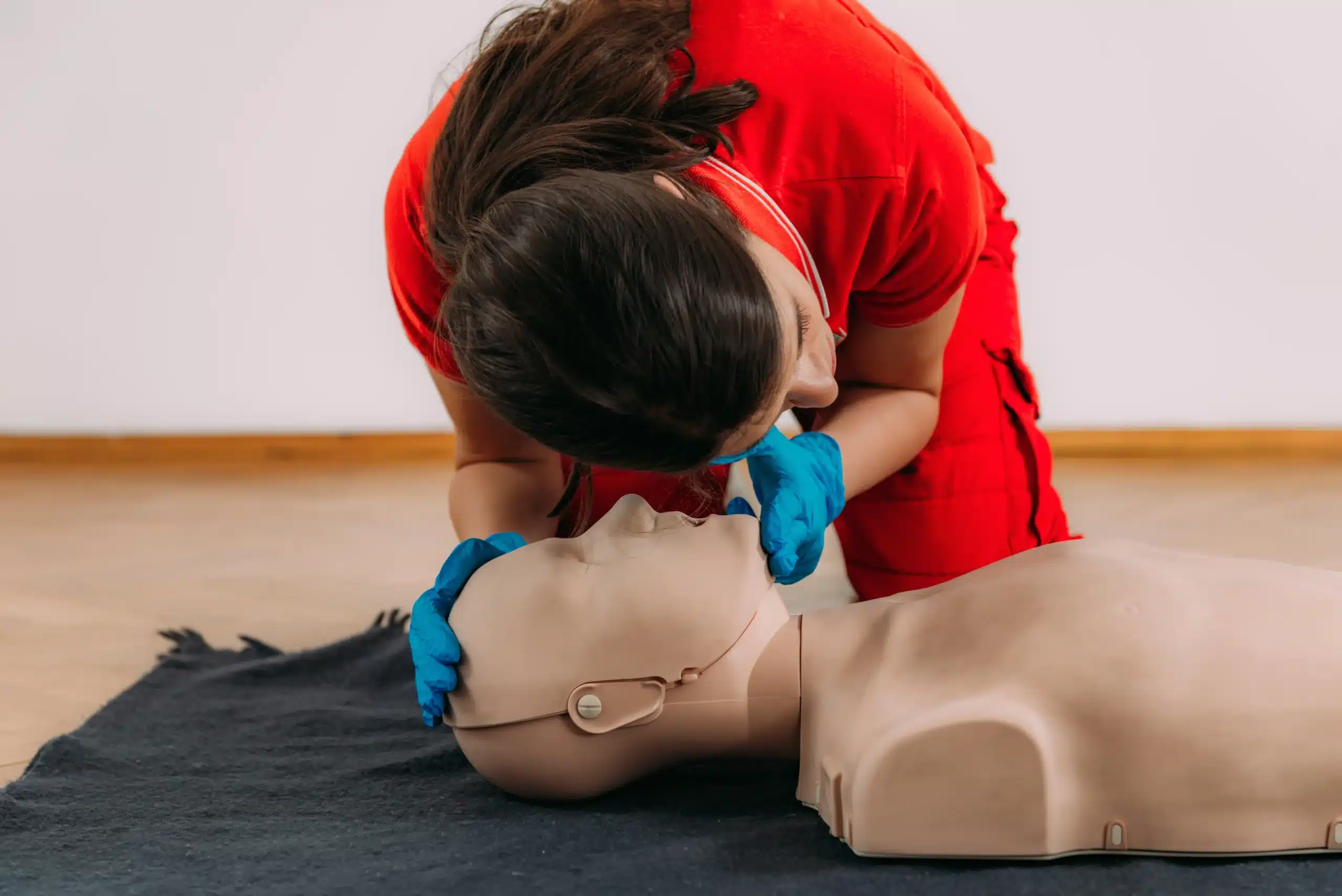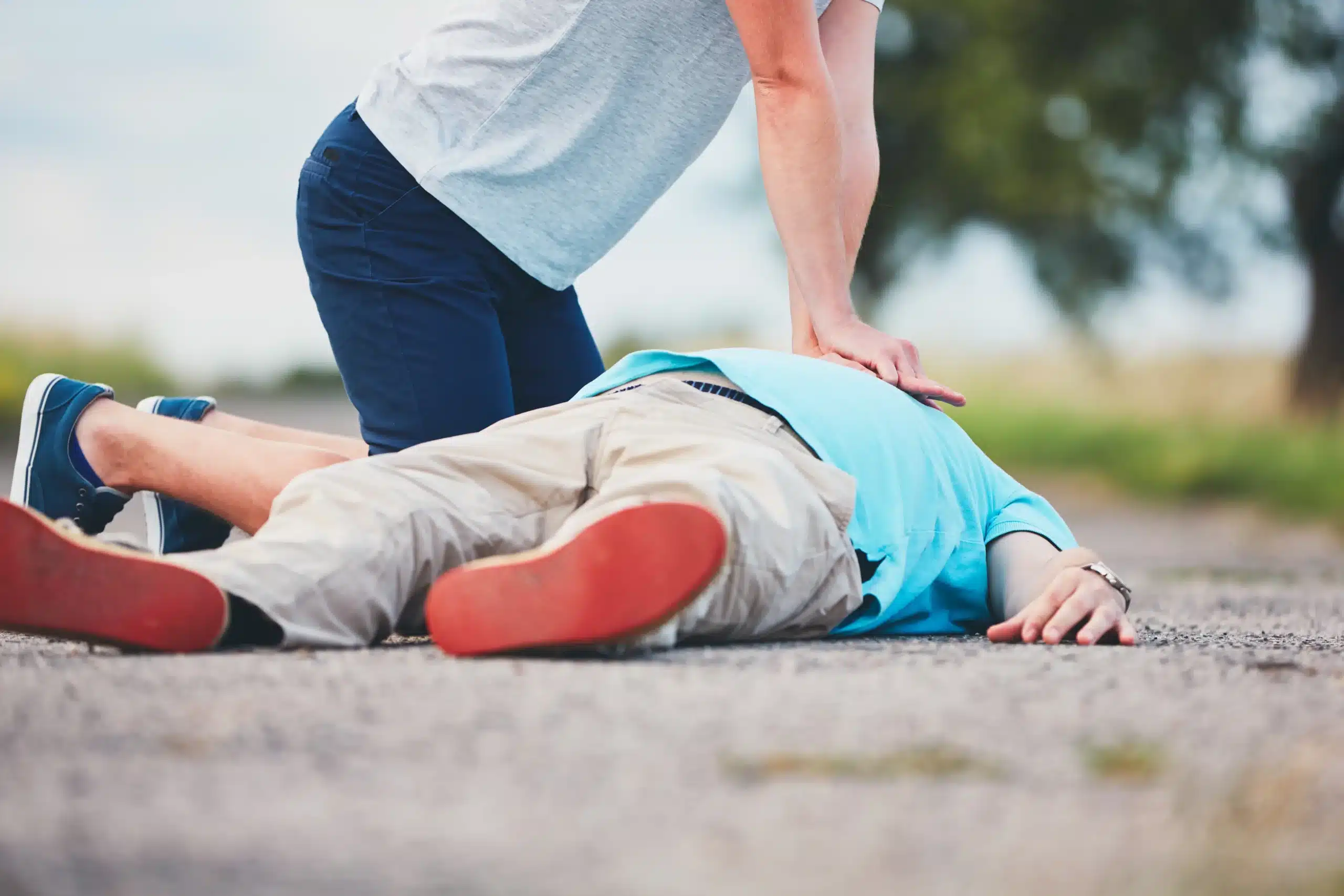In moments of crisis, knowing CPR can transform you from a bystander into a lifesaver. But with so many options available, finding the right CPR certification near you can feel overwhelming. This guide simplifies the process, answering your questions about CPR training, including the different types of certifications, what to expect during a class, and how to choose a reputable provider. Whether you’re a healthcare professional seeking “CPR certification near me” to maintain your credentials or a concerned parent wanting to learn essential life-saving skills, we’ll explore the various CPR class types, the costs involved, and the steps to prepare for your training. We’ll also delve into the advantages of local certification and the importance of staying up-to-date with your skills.
Key Takeaways
- CPR certification is a valuable skill: Whether you’re a healthcare professional or a concerned citizen, CPR training empowers you to respond effectively in emergencies and potentially save lives. Select the certification level that best suits your needs and career path.
- Finding a CPR class near you is simple: Use online resources, contact local healthcare providers, or check with community organizations to locate convenient and affordable training options. Prioritize accredited providers with experienced, certified instructors.
- Maintain your CPR skills through regular renewal: Keep your certification current to ensure you’re always prepared to respond confidently in emergencies. Explore streamlined recertification options to fit your busy schedule.
What is CPR Certification & Why Do You Need It?
CPR certification equips you with the skills to respond effectively during cardiac arrest emergencies. While you’re not legally required to have certification to perform CPR, a structured CPR course ensures you’re well-versed in the proper techniques. This training can dramatically increase the chances of survival for someone experiencing cardiac arrest. The Red Cross emphasizes that bystanders play a crucial role in these emergencies—your actions can significantly impact someone’s survival.
In a high-pressure situation, knowing exactly what to do can make all the difference. Formal training instills confidence and reduces hesitation, allowing you to act quickly and decisively. Beyond the immediate impact, CPR certification offers other advantages. Many healthcare jobs and other professions require nationally recognized certifications, like those offered by the American Heart Association (AHA). Getting certified demonstrates your commitment to safety and preparedness, a valuable asset in various career paths. Knowing you have these skills can also bring peace of mind to your daily life.
CPR Class Types
Knowing which CPR class best suits your needs depends on your goals and career path. Let’s explore some of the most common CPR certifications.
Basic Life Support (BLS)
Basic Life Support (BLS) training gives you the fundamental skills to respond to life-threatening emergencies. The course covers core techniques like CPR for adults, children, and infants, AED use, and how to help someone who is choking. BLS certification is often required for other advanced certifications and is valuable for healthcare providers and anyone who wants to be prepared for emergencies. It’s a good option for parents, teachers, coaches, and community members.
Advanced Cardiovascular Life Support (ACLS)
ACLS certification builds on the skills learned in BLS, focusing on advanced interventions for cardiovascular emergencies. This course is designed for healthcare professionals such as doctors, nurses, and paramedics who are often the first on the scene in these situations. ACLS training covers airway management, pharmacology, and team dynamics during resuscitation. It adds a layer of critical thinking and decision-making for complex medical scenarios.
Pediatric Advanced Life Support (PALS)
Designed for healthcare providers who work with children, the PALS course focuses on the specific needs of infants and children in medical emergencies. It covers a range of topics, from respiratory and cardiac emergencies to shock and post-resuscitation care. PALS certification is essential for pediatricians, pediatric nurses, EMTs, and other healthcare professionals who regularly treat young patients.
First Aid Certification
While not technically CPR, First Aid Certification complements any CPR training. It prepares you to handle various medical situations, from minor injuries like cuts and burns to more serious emergencies like allergic reactions and seizures. First Aid training teaches you how to assess a situation, provide immediate care, and determine when to call for professional medical help. It’s a practical skill set for everyone, regardless of profession. Consider pairing First Aid training with your CPR certification for a well-rounded approach to emergency preparedness. For more information, visit our course preparation page. We also offer group discounts and a low price guarantee.
Find CPR Classes Near You
Finding the right CPR class shouldn’t be a struggle. Whether you’re a healthcare professional needing to renew your ACLS certification or a parent wanting to learn basic first aid, several convenient options are available.
Online Search Tools & Directories
Start your search online. A quick search for “CPR classes near me” often reveals various options. Many organizations, including the American Heart Association, have online directories where you can locate certified training centers by location. Prioritize programs accredited by recognized health organizations to ensure you receive high-quality instruction. Check with your chosen provider for details on flexible scheduling and accelerated certification options. Merced CPR Classes is one example of a local provider offering these convenient features.
Local Healthcare Facilities & Organizations
Hospitals, clinics, and other healthcare facilities frequently offer CPR classes to both their staff and the community. Contact your local hospital or check its website for upcoming courses. These organizations often provide specialized courses like Pediatric Advanced Life Support (PALS) for those working with children. Merced CPR Classes offers a range of AHA-accredited courses, from BLS for healthcare providers to advanced certifications.
Community Centers & Fire Departments
Community centers and local fire departments are other excellent resources for CPR classes. These classes are often geared toward the general public and can be a more budget-friendly choice. Many community-based programs offer discounts for group classes, making it a cost-effective option for families, community groups, or workplaces. Merced CPR Classes offers this type of discount, making quality training accessible to more people.
CPR Certification: Cost & Duration
Getting CPR certified is a valuable investment, and understanding the costs and time involved can help you plan. Let’s break down the typical expenses and time commitment for CPR certification.
Class Pricing
CPR class prices vary based on the certification level, the training provider, and your location. You can find affordable CPR training options in Merced. Merced CPR Classes offers a low price guarantee, making quality training accessible for everyone. Basic CPR and First Aid classes are generally less expensive than advanced certifications like ACLS or PALS.
Factors Affecting Cost
Several factors influence the final cost of your CPR certification. The certifying organization (like the American Heart Association) plays a role, as does the type of course. A combined CPR/First Aid class may cost more than a CPR-only class. Also, the cost difference between basic and advanced courses is significant. ACLS and PALS certifications usually have a higher price tag because of their specialized content.
Discounts & Promotions
Many CPR training providers offer discounts, especially for groups. If you’re registering with friends, family, or coworkers, ask about group discounts. Merced CPR Classes offers discounts for group registrations, making it a budget-friendly choice for workplaces or community groups. Also, look out for seasonal promotions or special offers.
Class Length & Time Commitment
The length of a CPR class depends on the course content. You can often complete basic CPR and First Aid certification in a single day, usually within a few hours. More advanced courses like ACLS and PALS require a greater time commitment. At Merced CPR Classes, a basic CPR/AED/First Aid course (covering adult, child, and infant CPR) costs $89 for a Safety Training Seminars certification card. For an additional $40, upgrade to an AHA Pediatric certification (EMSA-approved for childcare providers). Factor in any pre-course preparation or post-course practice. Review the course preparation materials to understand the time commitment better.
Certification Validity
CPR certifications are typically valid for two years. Getting certified by a recognized organization like the AHA ensures your training meets national standards, often a job requirement for healthcare and other professions. Check with your employer or regulatory body to confirm their specific certification requirements. Merced CPR Classes’ low price guarantee makes staying current with your certification affordable and easy.
Choose a Reputable CPR Provider
Finding the right CPR training provider is crucial for receiving high-quality instruction and a recognized certification. Here’s what to consider when making your decision:
Accreditation & Credentials
Look for training centers accredited by nationally recognized organizations like the American Heart Association (AHA). This ensures the program meets established standards and guidelines. AHA-accredited providers offer courses such as BLS and ACLS, covering essential life-saving techniques. Verify the provider’s legitimacy and instructor credentials before signing up for a class.
Course Offerings & Instructor Qualifications
A good CPR training provider should offer a variety of courses to meet different needs, from basic CPR and first aid to more specialized certifications. Experienced, certified instructors are key to effective training. Inquire about the instructors’ backgrounds and experience to ensure they possess the necessary expertise. Effective CPR training often includes realistic scenarios and simulations, providing valuable hands-on practice. Merced CPR Classes offers a range of courses, including group discounts, and emphasizes comprehensive training to prepare students for real-world emergencies. Review the course preparation page for more information.
Reviews & Testimonials
Before committing to a CPR class, check online reviews and testimonials. Real student feedback can offer valuable insights into the quality of instruction, the learning environment, and the overall experience. Positive reviews often highlight instructors’ expertise, course effectiveness, and the provider’s commitment to student success. Reading reviews can help you choose a provider that aligns with your learning style and preferences. Don’t hesitate to ask the provider directly for references or testimonials if you can’t find them online. A reputable provider will be happy to share feedback from past students. Merced CPR Classes is committed to providing high-quality, affordable training and offers a low price guarantee.
What Happens During CPR Class?
CPR classes blend classroom learning with hands-on practice, so you’ll grasp the techniques and feel confident using them. Here’s a glimpse of what you can expect:
Classroom Instruction & Materials
Your CPR class will begin with an overview of CPR basics, including recognizing the signs of a cardiac arrest and understanding the importance of immediate action. Instructors use a variety of teaching materials, such as videos, presentations, and handouts, to explain the steps of CPR—chest compressions, airway opening, and rescue breaths (for certain certifications like BLS for healthcare providers). You’ll also learn about using an automated external defibrillator (AED) and other essential first aid skills. At Merced CPR Classes, we follow the American Heart Association’s guidelines, ensuring you receive high-quality instruction.
Hands-on Practice
The core of CPR training lies in hands-on practice. You’ll work with CPR training manikins to develop the muscle memory and coordination needed for effective chest compressions. This practice allows you to experience the correct depth and rate of compressions, a crucial aspect of successful CPR. Many classes, including those at Merced CPR Classes, incorporate realistic scenarios to simulate the pressure and complexities of real-life emergencies. This practical experience builds your confidence and prepares you to respond effectively in a crisis. For additional details, visit our course preparation page.
Assessment & Certification
To earn your CPR certification, you’ll complete a skills assessment where you demonstrate your proficiency in CPR techniques. This typically involves performing CPR on a manikin in front of your instructor. Upon successful completion, you’ll receive your official CPR certification card, valid for two years. This nationally recognized certification, often a requirement for healthcare jobs and other professions, validates your skills and knowledge. Experienced instructors are key to quality training, and that’s our commitment at Merced CPR Classes. We encourage you to explore our low price guarantee.
Prepare for Your CPR Class
Getting ready for your CPR class involves a few simple steps to ensure you’re prepared for both the learning and physical aspects of the training. Knowing what to expect can make your experience smoother and more effective.
Materials & Dress Code
Most CPR classes provide the necessary training materials, including manuals and any required equipment. Check with your chosen provider – like Merced CPR Classes – to confirm if you need to bring anything specific. Comfortable clothing is essential, as you’ll be actively participating in hands-on practice. Think loose-fitting clothes that allow for a full range of motion. You’ll be kneeling and bending, so avoid restrictive clothing or high heels.
Pre-Course Study
While pre-course study isn’t always mandatory for basic CPR certification, familiarizing yourself with the core concepts can be beneficial. Many providers offer online resources or recommend preparatory materials. Online CPR training can also be a great way to learn the basics before attending an in-person skills session. This can boost your confidence and prepare you for the hands-on portion of the class. When choosing a program, look for one accredited by a recognized health organization like the American Heart Association (AHA).
Physical Considerations & Accommodations
CPR training involves physical activity, including performing chest compressions and rescue breaths on mannequins. Be prepared for the physical demands of the course. If you have any physical limitations or require accommodations, inform your instructor beforehand. They can offer modifications or support to ensure you can fully participate. Effective CPR training often includes realistic scenarios, so be prepared for a dynamic and engaging learning environment. Merced CPR Classes offers programs like the Resuscitation Quality Improvement (RQI) program, a streamlined option for BLS, ACLS, and PALS certifications. This can be particularly helpful for busy professionals. Knowing what to expect can help you feel more comfortable and ready for a successful training experience.
Benefits of Local CPR Certification
Getting your CPR certification locally offers distinct advantages beyond simple convenience. It’s not just about learning a life-saving skill; it’s about becoming part of a network dedicated to community safety. Here’s why opting for local CPR training makes a difference:
Immediate Skill Application
Local CPR classes, like those offered by Merced CPR Classes, equip you with practical skills you can use immediately. These courses cover essential techniques like CPR, BLS, ACLS, PALS, and First Aid. Because these certifications are often prerequisites for healthcare jobs and other professions, earning your AHA certification ensures your training meets nationally recognized standards. This means you’re not just prepared for emergencies; you’re also enhancing your professional qualifications.
Local Networking
Taking a local class connects you with other professionals and community members who share your commitment to safety. Affordable training options in Merced make high-quality training accessible, fostering a sense of collective responsibility within the community. This local network can be invaluable, providing opportunities for ongoing learning, support, and collaboration. The growing interest in CPR and First-aid classes in Merced, reflects this community dedication to preparedness.
Supporting Local Safety
Choosing a local provider directly contributes to the safety of your community. By supporting businesses like Merced CPR Classes, you’re investing in resources that stay within your area. This strengthens local emergency response capabilities and creates a ripple effect of preparedness. Plus, local providers often offer specialized programs tailored to community needs, such as the RQI program for streamlined BLS, ACLS, and PALS certifications. This focus on local context ensures the training you receive is relevant and impactful.
Top Local CPR Providers
Finding the right CPR certification course often means choosing a program that fits your schedule, budget, and learning style. Several respected organizations offer CPR training in and around Merced.
American Heart Association
The American Heart Association (AHA) offers various CPR certification courses, including BLS, ACLS, PALS, and First Aid. They’re known for providing high-quality training and often have a low-price guarantee, making their courses accessible. The AHA focuses on evidence-based practices, so you can trust you’re learning the most up-to-date techniques.
American Red Cross
The American Red Cross offers CPR training in several formats—online, in person, and blended learning (a combination of online and in-person sessions). This flexibility can be particularly helpful for those with busy schedules. They also offer a variety of courses to suit different needs.
National Safety Council
The National Safety Council (NSC) provides CPR training and certification courses designed for both individuals and organizations. Their focus on practical skills and knowledge makes them a solid choice for those wanting hands-on learning. The NSC also offers a range of other safety training courses.
Local Hospitals & Medical Centers
Many local hospitals and medical centers offer CPR certification courses, often tailored for healthcare professionals. Check with hospitals in your area, like Mercy Medical Center Merced or Emanuel Medical Center in Turlock, for their course offerings. These courses often align with the latest standards and protocols.
Merced CPR Classes
Merced CPR Classes offers a comprehensive range of American Heart Association (AHA) certification courses, including CPR, BLS, ACLS, PALS, and First Aid. They also provide training for childcare providers complying with California EMSA requirements. Serving Merced, Turlock, and Atwater, they’re a convenient local option with a focus on customer service and affordable pricing. They even have discounts for group classes, making them a cost-effective choice for workplaces or groups.
Renew Your CPR Certification
CPR skills are essential in emergencies, but they can fade over time. Staying current with your certification ensures you’re prepared to act quickly and confidently when needed. This section covers everything you need to know about renewing your CPR certification.
Renewal Options & Frequency
CPR certifications, like those for BLS, are typically valid for two years. As your certification nears its expiration date, you’ll need to take a renewal course to maintain your credentials. These renewal courses cover the latest guidelines and techniques, keeping your skills sharp. Merced CPR Classes offers a variety of AHA-accredited courses to help you stay certified.
Importance of Staying Current
Regularly renewing your CPR certification isn’t just about checking a box; it’s about maintaining your ability to provide effective assistance in critical situations. Refresher courses reinforce essential skills and introduce any updated protocols. This ensures you’re prepared to deliver the highest quality care. The Red Cross emphasizes the importance of staying current with CPR training. Holding a current AHA certification demonstrates that your training meets nationally recognized standards, often a requirement for healthcare positions and other professions.
Recertification Process
Recertification is straightforward. You can choose a renewal course that fits your schedule and learning style. For busy professionals, programs like the Resuscitation Quality Improvement (RQI) program offer a streamlined path to recertification for BLS, ACLS, and PALS. Merced CPR Classes offers this program. Check with your chosen provider for details on flexible scheduling, accelerated options, and our low price guarantee. We aim to make renewing your CPR certification convenient and affordable.
Related Articles
- Why CPR is a Lifesaving Skill in Healthcare
- Best Online CPR Classes in Atwater, CA – Merced CPR Classes
- CPR Certification in Atwater: Your Guide – Merced CPR Classes
- CPR Certification in Merced: Your Complete Guide – Merced CPR Classes
- BLS Renewal Near Me: Find the Right Course – Merced CPR Classes
Frequently Asked Questions
What’s the difference between BLS and ACLS certification?
BLS certification covers the fundamentals of CPR and is suitable for anyone who wants to learn basic life-saving skills. ACLS certification is more advanced, focusing on advanced cardiovascular life support techniques for healthcare professionals. Think of BLS as the foundation, while ACLS builds upon that foundation with more specialized knowledge and skills.
How long does it take to get CPR certified?
You can usually complete a basic CPR and First Aid course in a single day. More advanced certifications like ACLS and PALS require a longer time commitment due to the complexity of the material. Check with your chosen training provider for specific course durations.
How much does CPR certification cost?
The cost varies depending on the level of certification, the training provider, and your location. Basic CPR classes are generally less expensive than advanced certifications. Look for providers offering discounts, especially for group registrations. Merced CPR Classes offers a low price guarantee, ensuring affordable training options.
How often do I need to renew my CPR certification?
Most CPR certifications are valid for two years. Check with your employer or certifying organization to confirm their specific renewal requirements. Staying current with your certification ensures you’re always prepared to respond effectively in an emergency.
Where can I find CPR classes near me?
You can find CPR classes through online searches, local hospitals and clinics, community centers, and fire departments. The American Heart Association and the American Red Cross also have online directories to help you locate certified training centers in your area. Merced CPR Classes offers a range of AHA-certified courses in Merced, Turlock, and Atwater.
